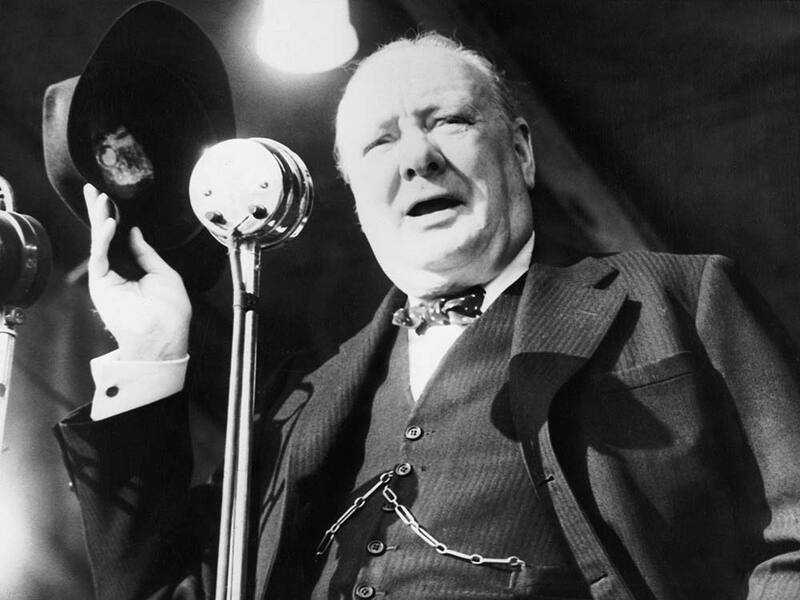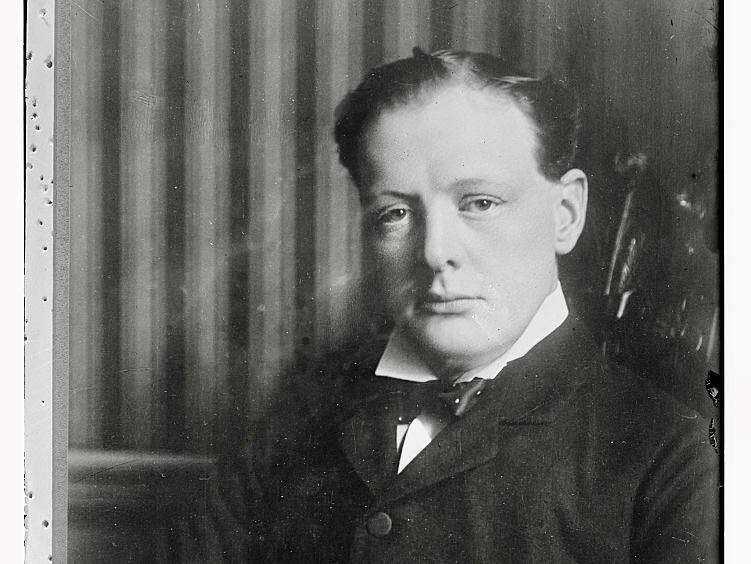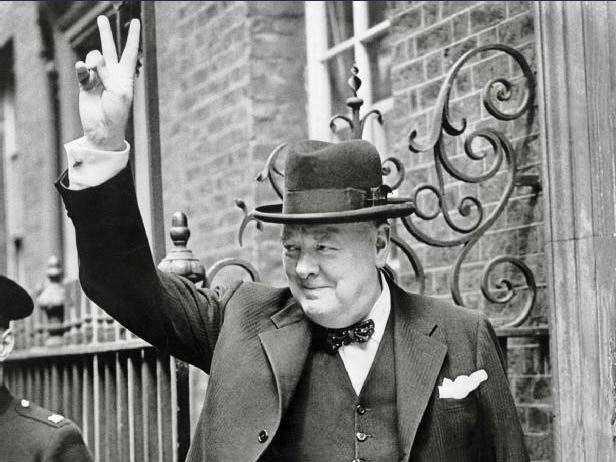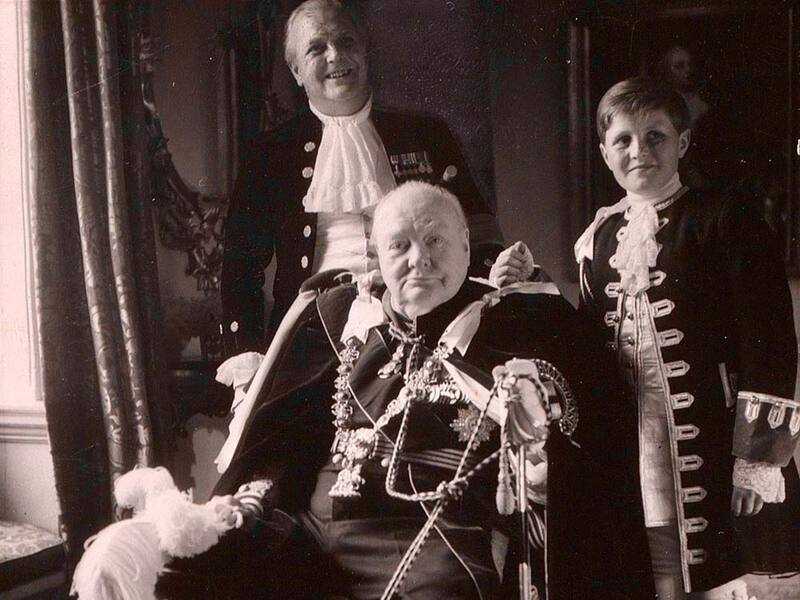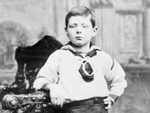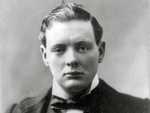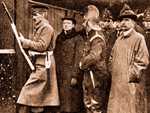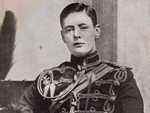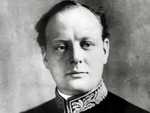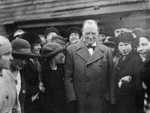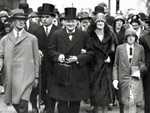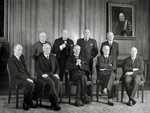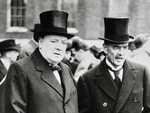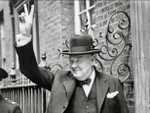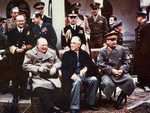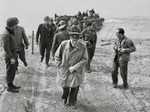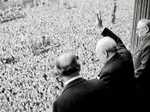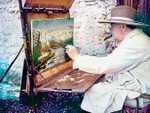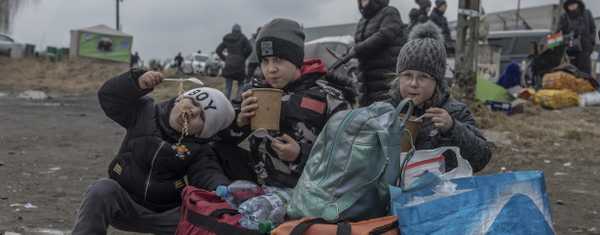1. Churchill's early years
Churchill was born in Blenheim Palace in 1874, the son of an English aristocrat and an American socialite.
His early life did not hint at the success which was to follow: he did poorly at school, was hindered by a speech impediment, and took three attempts to pass the entrance exams for the Royal Military College.
The army
When he graduated, he was commissioned as a second lieutenant in the 4th Hussars. With his pay unable to meet his expenses, Churchill embarked on a bold strategy of actively seeking out front line, in particular in Cuba, India and the Sudan, and reporting on the action for the national press.
Churchill left the army in 1899, and, having failed in his first attempt at election to the House of Commons, went to South Africa as a war correspondent. Here, Churchill’s insatiable desire for action saw him made a prisoner of war; his subsequent escape, and 300-mile journey to safety, made him a national hero for a period.
Churchill gets elected and becomes a minister
This can only have assisted his political aspirations, and Churchill was duly elected as a conservative member of parliament in 1900.
But Churchill was an outspoken critic of the government’s policies, and he crossed the floor and became a liberal in 1904. He thereafter served as:
- President of the Board of Trade (introducing pro-worker legislation),
- Home Secretary (exciting controversy by his actions in the Tonypandy Riot and Siege of Sidney Street in East London) and then,
- in 1911, First Lord of the Admiralty.
It was this position he held at the outbreak of the First World War.
2. The First World War
Churchill’s star waxed and waned during the First World War.
His first significant involvement was in travelling to the besieged Antwerp to take over operational responsibility for the defence of the city.
Antwerp and the Dardanelles
Though criticised at the time for the casualties sustained, historians have been more benevolent, arguing that the resistance helped to secure the important ports of Calais and Dunkirk. Indeed, Churchill at least had some military experience to rely upon, gained when a subaltern in the Fourth Hussars.
Churchill was also heavily involved in the development of the tank and the formation of the first tank corps, diverting Naval monies to fund these projects.
Then came the Dardanelles campaign—a plan for the amphibious landing at Gallipoli as a precursor to the capture of Constantinople, the capital of the Ottoman empire, and a secure sea route to Russia. The plan was a spectacular failure, with casualties exceeding half a million.
The front line and munitions
When the coalition government was formed in 1915, the Conservatives demanded Churchill’s demotion. He was given the unimportant position of Chancellor of the Duchy of Lancaster, and decided to return to the front line, as a lieutenant colonel commanding a battalion of Royal Scots fusiliers.
Churchill’s bravery—he made 36 forays into no-man’s land—was one factor behind his 1917 appointment, by Prime Minister David Lloyd George, as Minister of Munitions. He attacked this position with characteristic enthusiasm, increasing the ministry’s efficiency exponentially and helping to bring about German surrender.
Again, Churchill could not be kept away from the action: he spent much time visiting the front line with French Prime Minister Georges Clemenceaux.
3. The Inter-War Years
The Inter-War Years were also mixed for Churchill.
Promoted to Secretary of State for War and Air in 1919, and Secretary of State for the Colonies in 1921, he lost his Dundee seat in 1922. He returned two years later, when he won the safe Epping seat, and was appointed Chancellor of the Exchequer.
The Gold Standard and estrangement
Churchill then made the controversial decision to return the nation to the Gold Standard, which linked the value of the pound to a fixed weight of gold, and which was subsequently blamed for causing deflation, unemployment and nationwide strikes.
Worse was to come: Churchill was left out of the Cabinet with the conservatives returned to power in 1931. He had become estranged from the party as a result of major policy disagreements concerning protective tariffs and Indian home rule. He was not to hold ministerial office again until the outbreak of the Second World War.
Churchill and appeasement
But Churchill did not enter political hibernation. On the contrary, he consistently criticised the government’s failure to re-arm, describing it as
"decided only to be undecided, resolved to be irresolute, adamant for drift."
He was equally damning of Neville Chamberlain’s policy of appeasement:
"You were given a choice between war and dishonour. You chose dishonour and you will have war."
Hitler’s subsequent actions turned public opinion against Chamberlain and proved Churchill right. And so it was that Chamberlain came to re-appoint Churchill as First Lord of the Admiralty on the day Britain declared war on Germany, 3 September 1939.
4. The Second World War
Churchill did not have to wait long to become Prime Minister.
By May 1940, Hitler’s blitzkrieg advances had swept through Sweden, Norway, the low countries and France, and the country was demanding a new leader.
Churchill’s task was in some senses impossible: most of continental Europe had succumbed to Hitler’s powerful war machine; Hitler, Stalin and Mussolini were allies; and America was refusing to get drawn into another European war (and would not declare war on Germany for another 18 months).
His first important decision was to rule out negotiation with Hitler or further appeasement, a decision opposed by Lord Halifax (a powerful member of his cabinet). He then prepared and galvanised the nation for a long, hard war.
The Dunkirk Evacuation
Things got off to a good start when Churchill's flotilla of pleasure boats rescued much of the British expeditionary force (its professional army) from the Dunkirk beaches.
Oratory was a potent weapon: in one of his most famous speeches, just after the Dunkirk Evacuation, he said:
"We shall fight on the seas and oceans, we shall fight with growing confidence and growing strength in the air, we shall defend our island, whatever the cost may be … we shall never surrender."
Interesting fact ...
After making his famous speech, Churchill turned to a colleague in the House of Commons and whispered: “And we’ll fight them with the butt ends of broken beer bottles because that’s bloody well all we’ve got!”
The Battle of Britain
The RAF’s triumph in the Battle of Britain—attributable to Churchill’s oratory, the superiority of Britain’s Spitfire over the Luftwaffe’s Messerschmitt, and the bravery of the RAF’s pilots (described by Churchill as “the few” to who “the many” owed so much)—was the first sign that the tide might be turning.
But it was a close-run thing: at times between July and October 1940 every single available aircraft was in action.
Thereafter Hitler abandoned his plan to invade Britain, and concentrated his efforts on the Eastern front. But he did not forget about Britain: the blitz bombing raids on east London and other industrial cities killed over 40,000 and demolished 1 million houses.
Pearl Harbour and D-Day
Hitler's decision to focus on the eastern front, coupled with the United State’s entry into the war after the bombing of Pearl Harbour in December 1941, led Churchill to remark
“we have won the war."
But victory was a long time coming. It was achieved through success in North Africa, in the Atlantic, breaking the Enigma Code, and then through the invasion of Italy and France. And it was made possible by Churchill’s spirit, energy, ability to inspire and organise, and cordial relations with the Americans and Russians.
It is no exaggeration to say that, but for Churchill’s contribution, the war may well have been lost.
5. Defeat, Re-election and Retirement
No sooner was the war won than Churchill again found himself without office.
The country decided the person to lead them in war was not the person needed in times of peace.
Clement Atlee's labour government turned out to have a real reforming zeal, creating the National Health Service in 1948 (Aneurin Bevan was health secretary at the time). Churchill did not care for Atlee, describing him as "a modest man, with so much to be modest about".
Churchill, however, continued as leader of the opposition. Re-elected in the 1951 general election, Churchill struggled in his second stint in office to come to terms with the decline of Britain’s empire. With his health failing, he eventually resigned, in favour of Anthony Eden, in 1955. Churchill died, a decade later, on 24 January 1965.
His oratory never deserted him: his last words were
"The journey has been enjoyable and well worth making—once!"
Churchill was undoubtedly the greatest Prime Minister Britain has seen, eclipsing political heavyweights such as Margaret Thatcher, Benjamin Disraeli, William Gladstone and William Pitt the Younger.
More Churchill Quotes
We have already provided a selection of the best Churchill quotes. Here are ten more:
“It has been said that Democracy is the worst form of government except all those other forms that have been tried from time to time.”
“Curse ruthless time! Curse our mortality. How cruelly short is the allotted span for all we must cram into it!”
“Success is never found. Failure is never fatal. Courage is the only thing.”
“Victory at all costs, victory in spite of all terror, victory however long and hard the hard may be; for without victory there is no survival. ”
“You have enemies? Good. It means you’ve stood up for something, sometime in your life.”
“If you’re going through hell, keep going.”
“The best argument against democracy is a five-minute conversation with the average voter.”
“Success is the ability to go from one failure to another with no loss of enthusiasm.”
“I may be drunk, miss, but in the morning I will be sober and you will still be ugly.”
“The greatest lesson in life is to know that even fools are right sometimes.”
Churchill Resources
To learn more about Churchill, you might read Paul Johnson's marvellous short biography entitled Churchill or Roy Jenkins' 1000-page tome with the same title. Alternatively, you might visit Chartwell (Churchill's country home in Surrey) or the Cabinet War Rooms and Churchill Museum in central London.
In terms of films, there are a number to choose from. In 2017, Darkest Hour, an account of the early days of Churchill's premiership, won wave reviewes, six oscar nominations and two oscars (including best actor).
Another fascinating World War II film is the King's Speech, charting how George VI overcome his nerves and stammer with the assistance of Churchill and an Australian voice therapist; it won four oscars, including best picture, best director and best actor.
Other fine movies are The Gathering Storm (2002, charting Churchill's wilderness years of the 1930s) and Into the Storm (2009, covering World War II). Churchill's early life is the subject of the 1982 Richard Attenborough-directed Young Winston.
